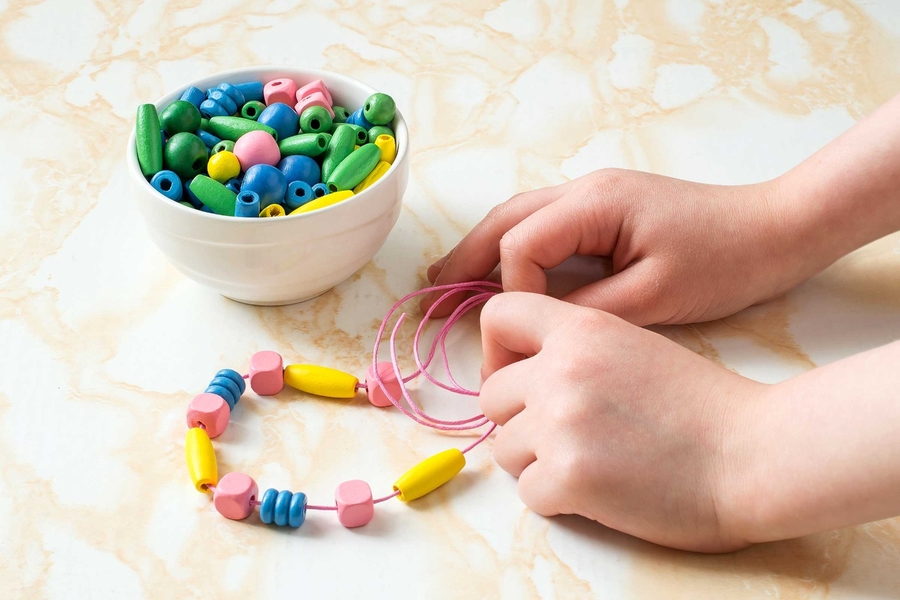
Fine Motor Skills: Importance & Ways To Develop Them
23 Jan 2018 | 3 min Read
Babychakra
Author | 1369 Articles
What are Fine Motor Skills?
Fine motor skill activities are all activities involving small objects that make use of the smaller muscles of the hands. All activities of the hand involving the use of fingers and wrists are fine motor skill activities. Fine motor development is an important prerequisite for your child’s growth and development. It helps the child to become independent and explore the world around them.
Activities that promote fine motor skills

Several activities promote fine motor skills in children. If your toddler is busy doing anything where he/she uses his wrists and fingers, it means that they are busy in fine motor exercises. Some of the common fine motor skill activities are listed below:
- Pencil-based skills such as scribbling, colouring, drawing, and doodling.
- Paper activities such as cutting, gluing, tearing, sticking, folding and crumpling.
- Dressing activities such as wearing clothes, dressing up their toys, tying shoelaces, buttoning clothes, closing and opening watch straps, brushing teeth and combing hair.
- Feeding activities such as eating with their fingers, using cutlery like spoons forks, knives, chopsticks and opening and closing lunchboxes.
- Playing with sand, clay, blocks such as Lego, Duplo, Jhenga and Mikado.
Importance of fine motor skills
Fine motor skills help the child in performing essential everyday tasks independently. Inability to complete these basic activities can hamper the child’s self-esteem and confidence. The child may become socially withdrawn, find it difficult to play with his peers and may become irritable.
Studies have shown that development of fine motor skills is an important indicator for readiness for school and performance in school. If you notice that your child has difficulties in performing activities involving fine motor skills then talk to your paediatrician regarding your concern. Encourage the child to engage in a variety of fine motor skills activity every single day. Development of fine motor skills has also been suggested by child experts as an intervention tool for writing and math education in children.
Development of fine motor skills in children
Young children naturally find ways to develop their fine motor skills. Playing and messing with food is probably one of the first ways by which toddlers cultivate their fine motor skills. Picking tiny pieces of food and placing it inside their mouth requires coordination and expertise. Simply squishing, pinching and spreading food around on a plate and even their faces and bodies are all exercises for developing fine motor skills.
Relationship between improving fine motor skills and intelligence
New research studies in cognitive development- the ability to think, reason and remember, have shown that the brain uses the same neural infrastructure for cognitive learning that is built during motor skill development in children. Researchers also suggest that diverse and challenging motor activities in children help develop diverse cognitive capacity. Provide your child with ample exposure to a variety of fine motor skill toys and games to help develop his/her motor skills.
Enrol your preschoolers to a good toy and books library in the neighbourhood and enjoy watching them play, learn and grow into the genius they are.
Source of banner image: Reader’s Digest
Disclaimer: The information in the article is not intended or implied to be a substitute for professional medical advice, diagnosis or treatment. Always seek the advice of your doctor.
Also read: Fun Ways to Build Fine Motor Skills In Your Children
A


Related Topics for you
Suggestions offered by doctors on BabyChakra are of advisory nature i.e., for educational and informational purposes only. Content posted on, created for, or compiled by BabyChakra is not intended or designed to replace your doctor's independent judgment about any symptom, condition, or the appropriateness or risks of a procedure or treatment for a given person.
